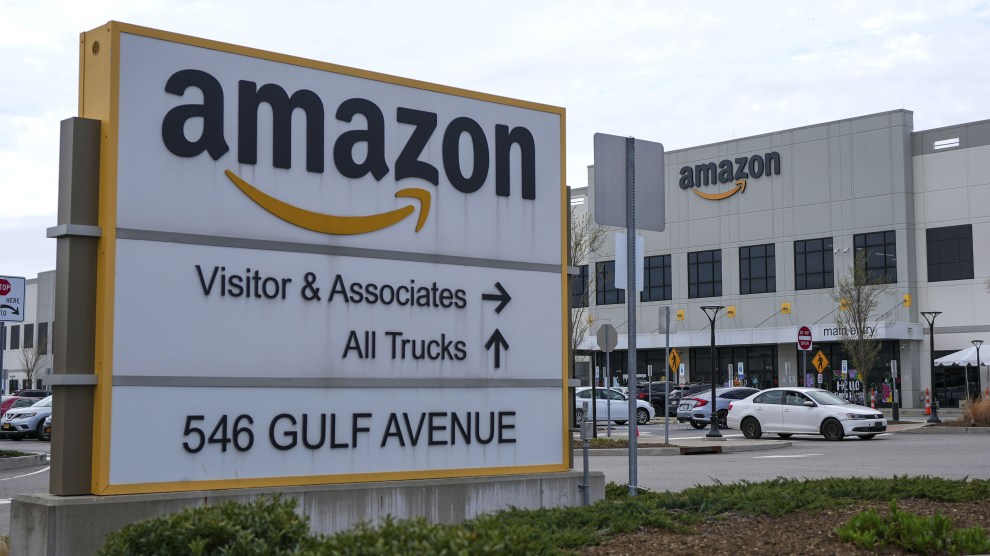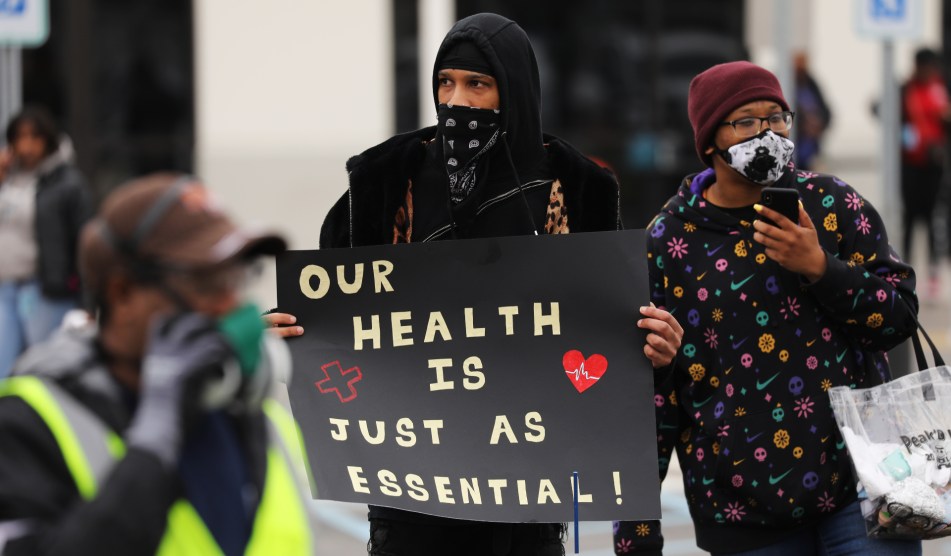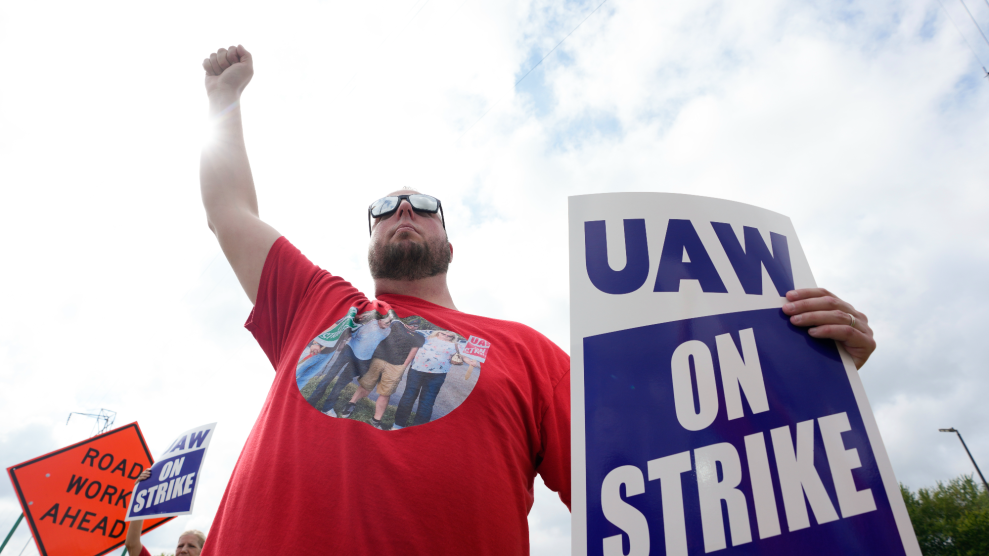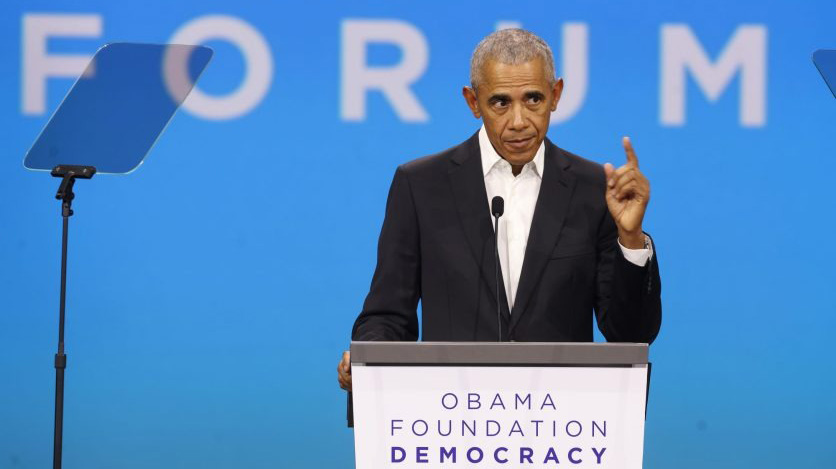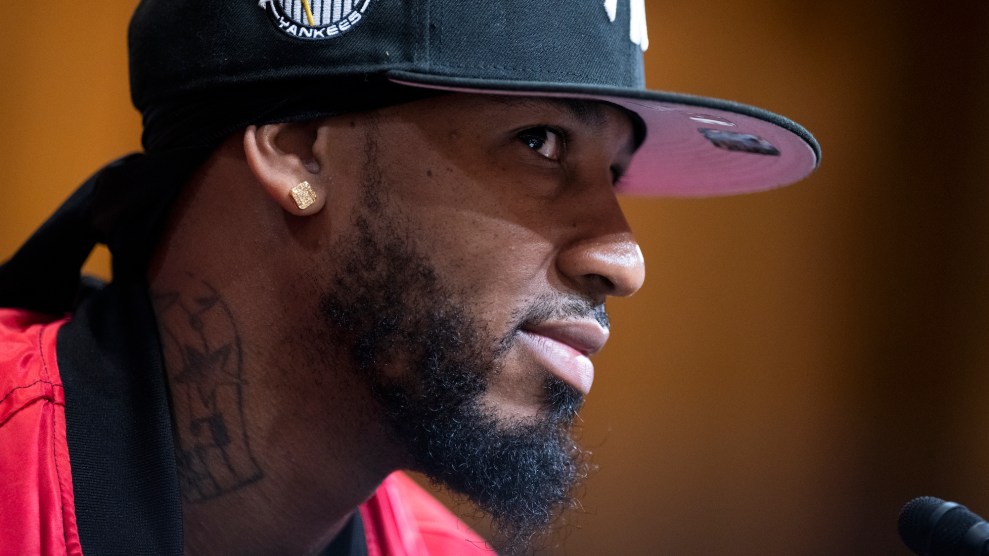
Christian Smalls, president of the Amazon Labor Union, testifies before the Senate Budget Committee.Tom Williams/AP
At a Senate hearing on Thursday, Christian Smalls, the interim president of the Amazon Labor Union, delivered a message to Republican Sen. Lindsey Graham: “You forgot that the people are the ones who make these companies operate.”
The hearing comes a month after the workers Smalls represents at an Amazon warehouse on Staten Island voted to form the company’s first union.
WATCH: Opening statement from Christian Smalls (@Shut_downAmazon), Amazon Labor Union President, before the Senate Budget Committee.
Full video here: https://t.co/FPLeBtk7Hw pic.twitter.com/RTRzxBrO6b
— CSPAN (@cspan) May 5, 2022
Sen. Bernie Sanders (I-Vt.), the head of the Senate budget committee, organized the hearing to look at whether the federal government should be awarding contracts to companies that have broken federal labor laws. The focus was on Amazon, which has racked up more than $75 million in fines for violating federal discrimination and wage laws, according to a committee press release.
“I think [Graham] suggested that a hearing like this is radical,” Sanders said after Smalls and other witnesses delivered their opening remarks. “You know what, I think he’s right. In a Congress dominated by corporate lobbyists and wealthy campaign contributors, the idea that we would actually hear from the working class of this country is in fact radical.” Sanders continued: “I make no apologies for that.”
Smalls also responded to Graham by saying that the hearing was necessary because the process for holding companies accountable has not been working. “It’s not a left or a right thing. It’s not a Democrat or Republican thing,” Smalls said. “It’s a workers issue. And we are the ones that are suffering in the corporations that you’re talking about.”
The criticism of Amazon was, at times, bipartisan. Sen. Mike Braun (R-Ind.), citing his own business experience, argued that companies that are conscientious, pay high wages, and treat workers like family hang on to their employees.
“When somebody does get out of line, when wealth gets too concentrated, when you got 150 percent turnover rates, high accident rates,” Braun said referring to Amazon, “you’re gonna have to have a medium to vent your grievance and unions vis-a-vis largely companies, [are] probably the only way you can do it.”
Earlier this week, workers at a neighboring Amazon facility voted against joining the Amazon Labor Union. The company is also trying to throw out the results of the April election won by the union. Smalls and fellow Amazon Labor Union members are focused on getting a strong contract for the more than 8,000 workers at that warehouse.


